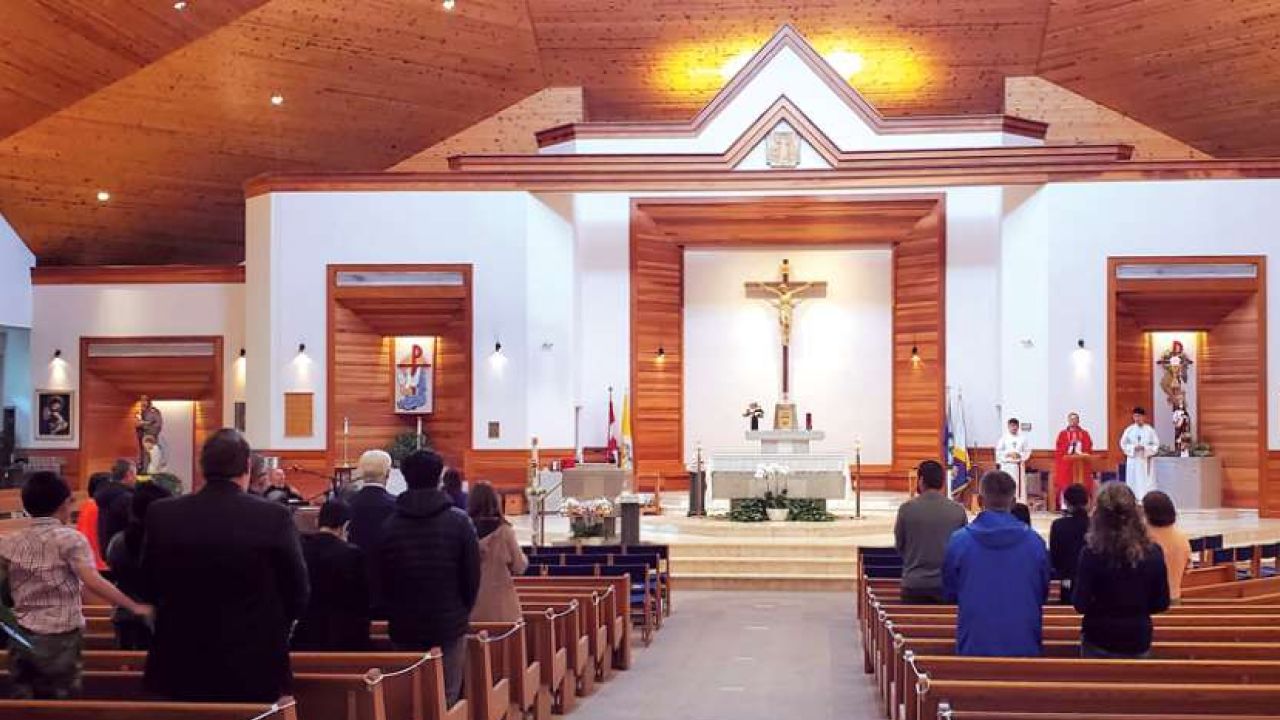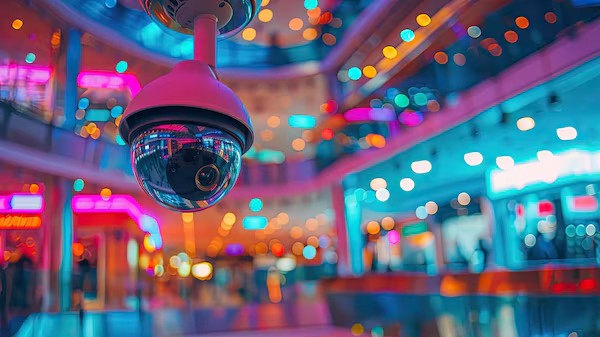

Safeguarding Houses of Worship: The Need for Enhanced Security Measures
Places of worship, including churches, synagogues, temples, and mosques, are designed to be safe havens for communities. However, they are not exempt from criminal activity. These sacred spaces can experience break-ins, thefts, trespassing, domestic disturbances, and, regrettably, hate crimes and acts of domestic terrorism. The very openness that invites people in can also expose these institutions to potential threats.
Ensuring safety within houses of worship is paramount, particularly those that draw large crowds for services or events. Large gatherings can pose significant safety risks to attendees and the facilities themselves.
Proactive crime prevention is essential; it is far more effective to avert incidents than to respond after they occur. This highlights the advantages of remote video monitoring systems over traditional physical security personnel.
While onsite security officers and after-hours attendants can create a visible security presence, their effectiveness is often limited. Many houses of worship encompass multiple buildings and areas, necessitating several officers to adequately cover the entire property. Even with a full security team, there remains a risk that suspicious activities could go unnoticed.
Remote video monitoring offers continuous surveillance for houses of worship. By integrating security cameras, two-way audio systems, access control technology, and more, religious facilities can achieve robust security without needing a physical security presence.
This modern approach employs virtual patrols and Artificial Intelligence (AI) to actively monitor for unusual activities. When a camera detects motion, alerts are sent to a Security Operations Center, where trained professionals assess and respond to the situation.
Unlike traditional methods that often react to incidents, remote video monitoring takes a proactive stance. This system not only watches for suspicious individuals but also works to prevent incidents from escalating.
As with many public and private spaces, the need for security in houses of worship stems from various factors. The welcoming nature of these institutions, while inviting to genuine visitors, can also leave them open to various threats. Here are several critical reasons for implementing security measures:
With advancements in technology, the landscape of security is shifting from physical to virtual solutions. The rise of sophisticated security cameras, AI, and other technological infrastructure allows for remote surveillance and protection of facilities.
The safety of congregants, leaders, and visitors is a top priority during services and events. Effective security measures help ensure that everyone can worship freely and safely, mitigating potential disruptions and violence aimed at these places.
Houses of worship can fall prey to vandalism, break-ins, and theft. Implementing security measures like surveillance cameras, access controls, and intrusion detection systems can serve as deterrents against such criminal activities.
Sadly, places of worship can be targets for hate crimes and acts of terrorism. Security protocols are essential in minimizing the risk of these events and protecting communities from violence and discrimination. Remote video monitoring can play a pivotal role in identifying and preventing suspicious behavior before it escalates into violence.
When selecting comprehensive security solutions for houses of worship, several factors must be considered:
A thorough risk assessment conducted by a security professional can uncover vulnerabilities and gaps in current security measures. This assessment should evaluate all access points, security protocols, and response procedures to potential incidents. By identifying weaknesses, security experts can recommend improvements that enhance safety for worshippers.
The costs associated with security systems can vary widely based on factors such as facility size, required technology, and monitoring hours. Traditional approaches, like hiring onsite security officers, can quickly become expensive. In contrast, remote video monitoring offers 24/7 surveillance at a significantly lower cost, proving to be a more economical long-term solution.
Effective access control is vital, especially after hours. While services may be open to all, securing the premises when closed is essential. Ensuring that all entrances are locked and that only authorized individuals can access certain areas protects valuable assets and reduces the risk of unauthorized entry.
Remote video monitoring systems enhance access control by allowing security personnel to monitor who enters and exits the facility and grant access to authorized individuals even if they lack keys.
Implementing alarm systems is another effective strategy to prevent security breaches. Arming these systems when facilities are unoccupied can thwart break-ins and potential vandalism.
When paired with remote video monitoring, security professionals can oversee alarm systems in real-time. If an alarm is triggered, they can quickly access live and recorded footage to verify any intrusions. In the event of a confirmed breach, monitoring agents can alert law enforcement and notify facility leaders to take necessary actions.
Articles
All articles
AI Surveillance Systems: Transforming Safety and Operational Efficiency in Modern Shopping Malls
AI Surveillance Systems: Transforming Safety and Operational Efficiency in Modern Shopping Malls

The Advantages of a Comprehensive Home Surveillance System
The Advantages of a Comprehensive Home Surveillance System

Seeing Clearly: The Advantages of 4K Surveillance for Businesses
Seeing Clearly: The Advantages of 4K Surveillance for Businesses

Indoor vs. Outdoor Security Cameras: Making the Right Choice for Your Safety
Indoor vs. Outdoor Security Cameras: Making the Right Choice for Your Safety

The Smart Investment: How Monitored Security Cameras Enhance Business Safety
The Smart Investment: How Monitored Security Cameras Enhance Business Safety

2024 Security Camera Buying Guide: What You Need to Know
2024 Security Camera Buying Guide: What You Need to Know

Essential Guide to Troubleshooting IP Camera Systems
Essential Guide to Troubleshooting IP Camera Systems

Artificial Intelligence: Transforming IP Camera Systems
Artificial Intelligence: Transforming IP Camera Systems

Thermal Cameras: Enhancing Security and Operational Excellence Across Industries
Thermal Cameras: Enhancing Security and Operational Excellence Across Industries

Maximizing Safety and Efficiency: The Impact of IP Camera Systems Across Industries
Maximizing Safety and Efficiency: The Impact of IP Camera Systems Across Industries

Beyond Security: How Surveillance Cameras Transform Shipping and Receiving Operations
Beyond Security: How Surveillance Cameras Transform Shipping and Receiving Operations

Enhancing Safety: The Essential Role of Security Camera Systems in Apartment Complexes
Enhancing Safety: The Essential Role of Security Camera Systems in Apartment Complexes

Is a PTZ Camera the Right Choice for Your Business?
Is a PTZ Camera the Right Choice for Your Business?

Troubleshooting Nighttime Flickering: Understanding Your Security Camera Issues
Troubleshooting Nighttime Flickering: Understanding Your Security Camera Issues

Why Are My Cameras Showing Black and White Images?
Why Are My Cameras Showing Black and White Images?

Safeguarding Your Security Cameras from Hackers
Safeguarding Your Security Cameras from Hackers

A Comprehensive Guide to Security Camera Cabling: Types, Failures, and Solutions
A Comprehensive Guide to Security Camera Cabling: Types, Failures, and Solutions

Securing the Aggregate Industry: The Essential Role of Surveillance Cameras
Securing the Aggregate Industry: The Essential Role of Surveillance Cameras

Security Cameras: A Comprehensive Overview of Types and Features
Security Cameras: A Comprehensive Overview of Types and Features

Protecting Your Car Wash: Essential Security Measures Against Theft and False Claims
Protecting Your Car Wash: Essential Security Measures Against Theft and False Claims
Try TRASSIR For Your Business
Learn more about how TRASSIR analytic modules work! Demo mode is an opportunity to see for yourself how the system works, and also check the interface and test all the functions.Success!
We will contact you as soon as possible